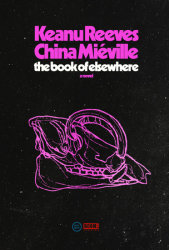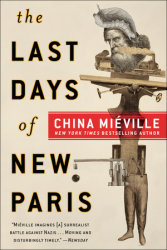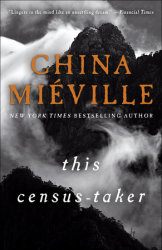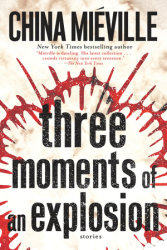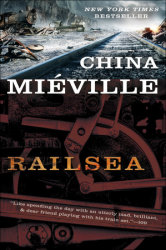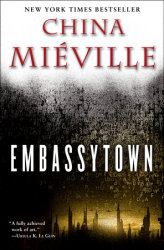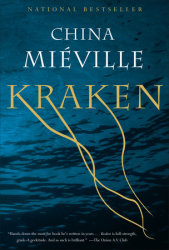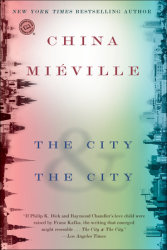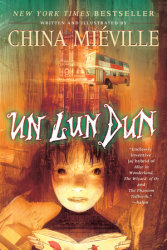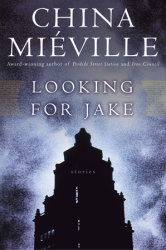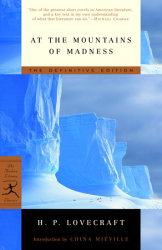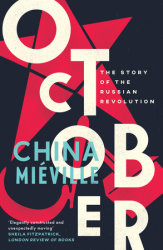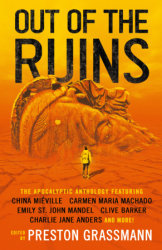Penguin Random House: What do people need to know about Railsea? What’s the essential premise?
China Mieville: Basically the book is pinned on a very simple, very silly joke, which is Moby Dick — only with moles instead of whales, and once you do that then a lot of things spin off from it. If you’ve got moles, which are rising out of the earth instead of rising out of the sea, then obviously you’re not chasing them on ships. So, then what are you chasing them on instead? You could have said cars or carriages, but I like the idea of trains because it’s so counterintuitive since trains supposedly have fixed routes and the sea is infinitely possible — so how do you get around that? You get around that by having a tangle of rails that goes on forever and so on and so forth. So the basic peg was the combination of a very silly joke about a kind of misprision of Moby Dick combined with an interest in inverting the usual cliché about the teleology of the railway.
SIG: Moby Dick is an influence on Railsea. How do you keep that recognizable but not create a derivative work?
CM: I can only speak for myself — obviously different writers are going to do it different ways — but for me, while Moby Dick is an enormous touchstone, the book is not intended to be a retelling at all. It takes a couple of aesthetic and philosophical tropes and a basic narrative hook — look for that big, weirdly colored animal — and it goes off and does whatever it wants. There are books that retell particular stories in different settings. You have a retelling of The Odyssey or Beowulf in a different setting — but that wasn’t my aim; it’s not a structure that particularly interests me. There’s absolutely no slavish attempt to follow the structure of Moby Dick; it was really more as just a kind of hook and then kind of whirring off and taking influences from other stuff. There are other influences, maritime books. It riffed on Treasure Island, Kidnapped, Robinson Crusoe and various other things. The way that I hope that it doesn’t become completely derivative is that it always had kind of a relaxed attitude. If you like, a piratical attitude toward its source material.
SIG: The captains in Railsea are chasing “philosophies.” What are those?
CM: This is a world in which there are lots and lots of burrowing animals, which are mostly very dangerous and voracious and the captains are hunting them. If we have learned anything from Moby Dick, it is that chasing giant hidden animals is a kind of intrinsically metaphorizing thing to do and much ink has been spilt on what exactly it is that is being chased. What does, to use that horrendous phrase, Moby Dick represent? It’s just such a horrible, deadening way to think about fiction, but it’s also something that is done a lot. I like the way of literalizing that and affectionately riffing on it and spinning it out a little bit so that it’s done more directly and more explicitly. Where as I suppose that you could say, very crudely, that in Moby Dick the captain is chasing the whale and we the readers are aware that he is also chasing whatever that symbolic thing is. The only thing that is different in Railsea is that the captains are also aware that they are chasing symbols as well as actual animals. Some people might see it as a metaphor for scholarship. I couldn’t possibly comment!
Want more with China Mieville? Check out Suvudu.com.







